OUR GUIDES AND MANUALS
This section gathers the pedagogical, social and professional training tools developed by the UNESCO-PREV Chair. The different guides and manuals available explore various issues related to social polarization and radicalization.
PREVENTING SOCIAL POLARIZATIONS — WORKBOOK
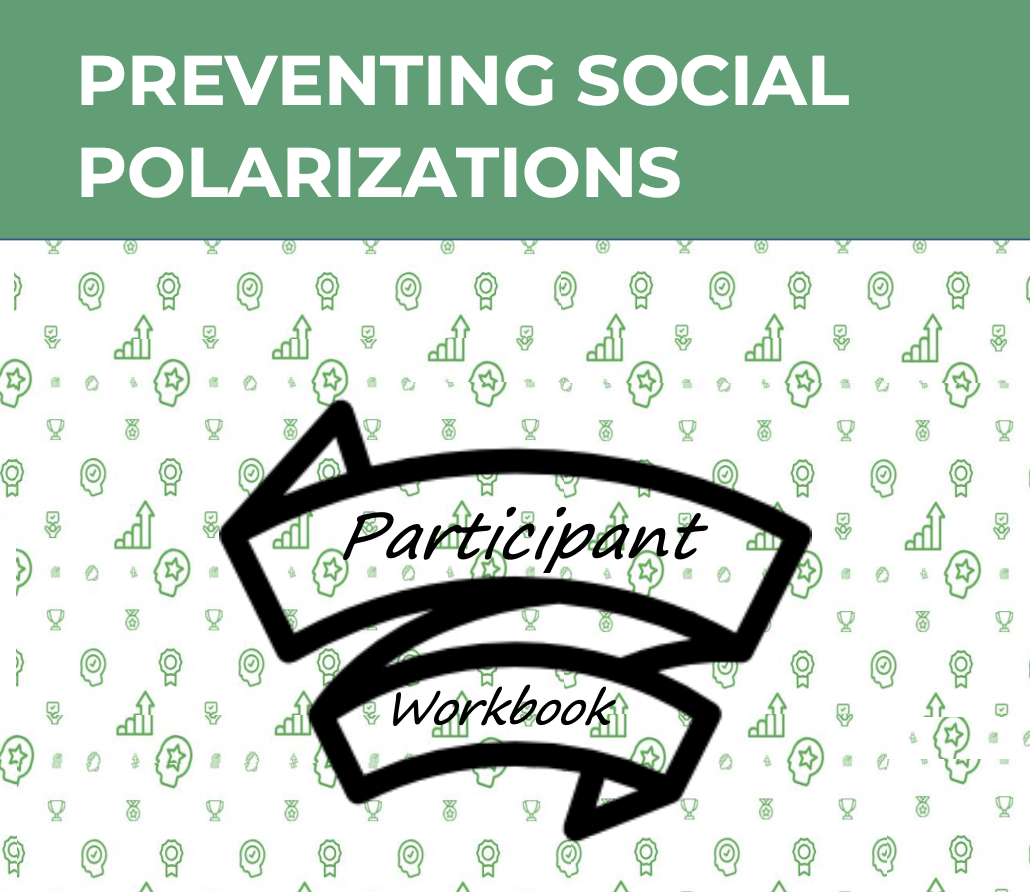 This booklet was developed as part of the “Partnership in Practice: Preventing Social Polarizations” conference held in Edmonton from November 30th to December 3rd, 2018. It includes a set of activities to help integrate and organize the information gathered by stakeholders and participants. It will provide support to consolidate key ideas from formal events and informal conversations between researchers, practitioners and youth.
This booklet was developed as part of the “Partnership in Practice: Preventing Social Polarizations” conference held in Edmonton from November 30th to December 3rd, 2018. It includes a set of activities to help integrate and organize the information gathered by stakeholders and participants. It will provide support to consolidate key ideas from formal events and informal conversations between researchers, practitioners and youth.
This workbook is designed as a tool for sharing thoughts and completing exercises to develop personal understanding of the concepts heard before, during and after presentations and activities.
Authors
Florence Bergeron, Marie-Eve Gosselin, Ghayda Hassan, Paola Porcelli and Émilie Verret from the Canadian Practitioners Network for Prevention of Radicalization and Extremist Violence
Access
Please note that the document is only available in English. To download the workbook, click here.
UNDERSTANDING FOR BETTER ACTION — GUIDE FOR TEACHING STAFF
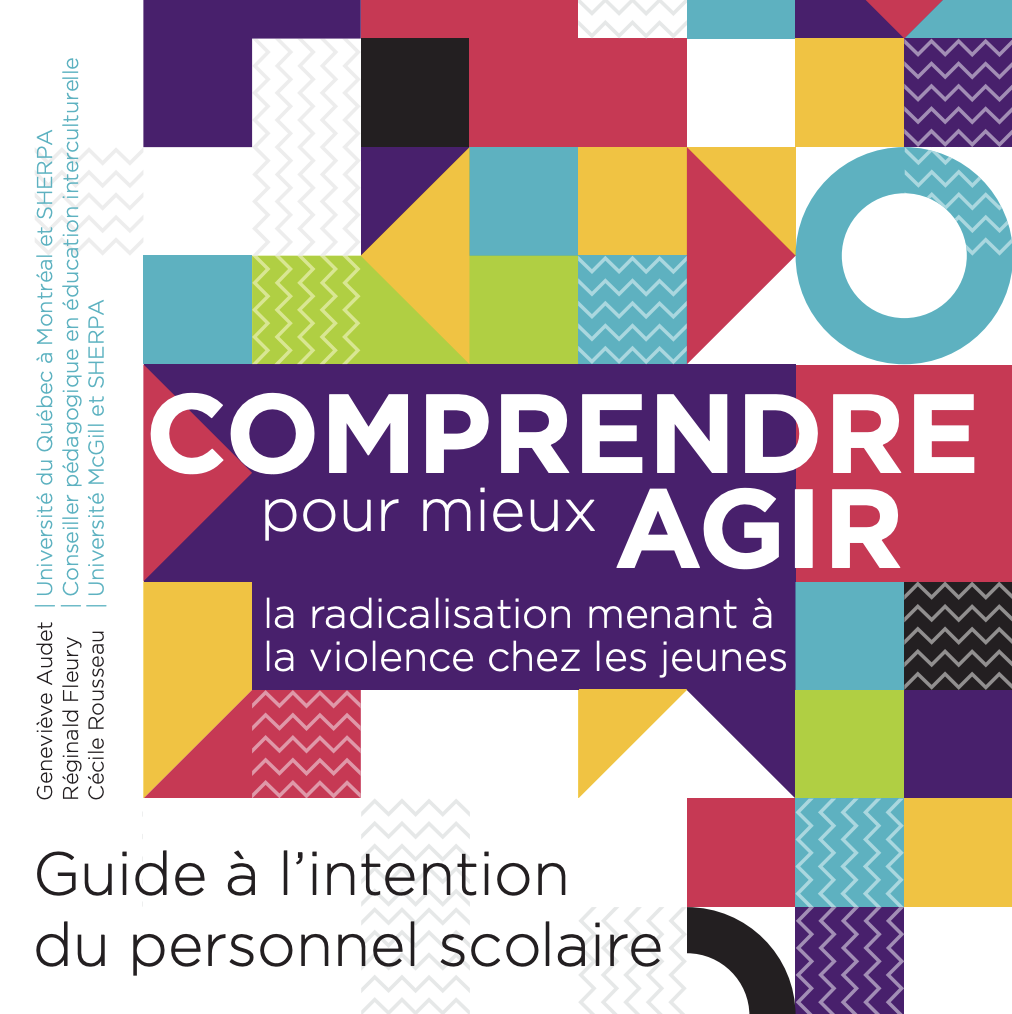 “Understanding Radicalization Leading to Youth Violence for Better Action: A Guide for Teaching Staff” was developed by the Institut universitaire SHERPA, a research centre on ethnocultural communities affiliated with the CIUSSS du Centre-Ouest-de-l’Île-de-Montréal. The guide was developed in collaboration with the Direction des services d’accueil et d’éducation interculturelle du ministère de l’Éducation et de l’Enseignement supérieur (MEES).
“Understanding Radicalization Leading to Youth Violence for Better Action: A Guide for Teaching Staff” was developed by the Institut universitaire SHERPA, a research centre on ethnocultural communities affiliated with the CIUSSS du Centre-Ouest-de-l’Île-de-Montréal. The guide was developed in collaboration with the Direction des services d’accueil et d’éducation interculturelle du ministère de l’Éducation et de l’Enseignement supérieur (MEES).
Developed as part of the Plan d’action gouvernemental 2015-2018, it provides training on violent radicalization among young people in Québec. The guidebook aims to connect the training to the orientations of intercultural education, put forward by the MEES, in order to support school staff in implementing effective actions to address this issue, most notably through community living.
Authors
Geneviève Audet | Professor at Université du Québec à Montréal (UQÀM) and Researcher at SHERPA Research Institute
Réginald Fleury| Pedagogical Counsellor in Education and Intercultural Relations at the Commission scolaire de Montréal
Cécile Rousseau | Professor at McGill University and Researcher at SHERPA Research Institute
Access
Please note that this resource is only available in French. To download our guidebook, click here.
DIGITAL CITIZENS OF TOMORROW — SERIES OF WORKBOOKS
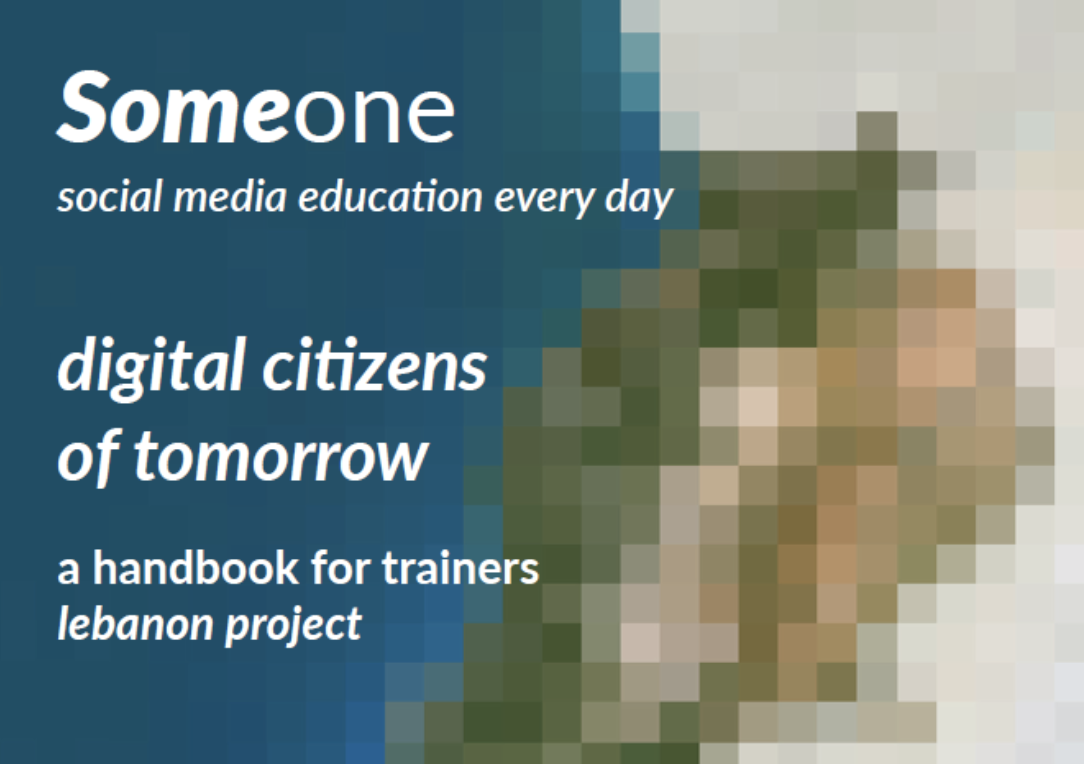 The UNESCO-PREV Chair now makes available the final versions of the training material resulting from a co-creation project that aimed to disseminate primary prevention activities. Empowering communities to develop resilience against violent extremism, these tools address critical digital literacy. They also explore strategies for developing social media campaigns to counter violence and hate speech. The project’s objective is to increase the potential and effectiveness of interactions between Lebanese actors and the marginalized and vulnerable populations they serve in their respective contexts.
The UNESCO-PREV Chair now makes available the final versions of the training material resulting from a co-creation project that aimed to disseminate primary prevention activities. Empowering communities to develop resilience against violent extremism, these tools address critical digital literacy. They also explore strategies for developing social media campaigns to counter violence and hate speech. The project’s objective is to increase the potential and effectiveness of interactions between Lebanese actors and the marginalized and vulnerable populations they serve in their respective contexts.
With the financial support provided by Global Affairs Canada in April 2018, the UNESCO-PREV Chair was able to develop this project in partnership with actors from various Lebanese communities, as well as the country’s educational and public policy sectors.
Our experts at Project SOMEONE collaborated with actors from six (6) organizations: Heritage College, Majed Abu Sharar Media Foundation, Youth Association for the Blind, Inclusion Network, the Collective for Research and Training on Development-Action and Basmeh Wa Zaytouneh.
Access
Please note that the resources are only available in English and/or Arabic.
For university and lecturers
Web 2.0 : A Platform for Peace (Not Hate) — English Version
For teaching staff
Digital Citizens of Tomorrow — English Version
Digital Citizens of Tomorrow — Arabic Version
For social workers
Digital Empowerment — Arabic Version
For activists in the media
Online Media and the Critical Thinker — Arabic Version
TERRORISM AND THE MEDIA — MANUAL FOR JOURNALISTS
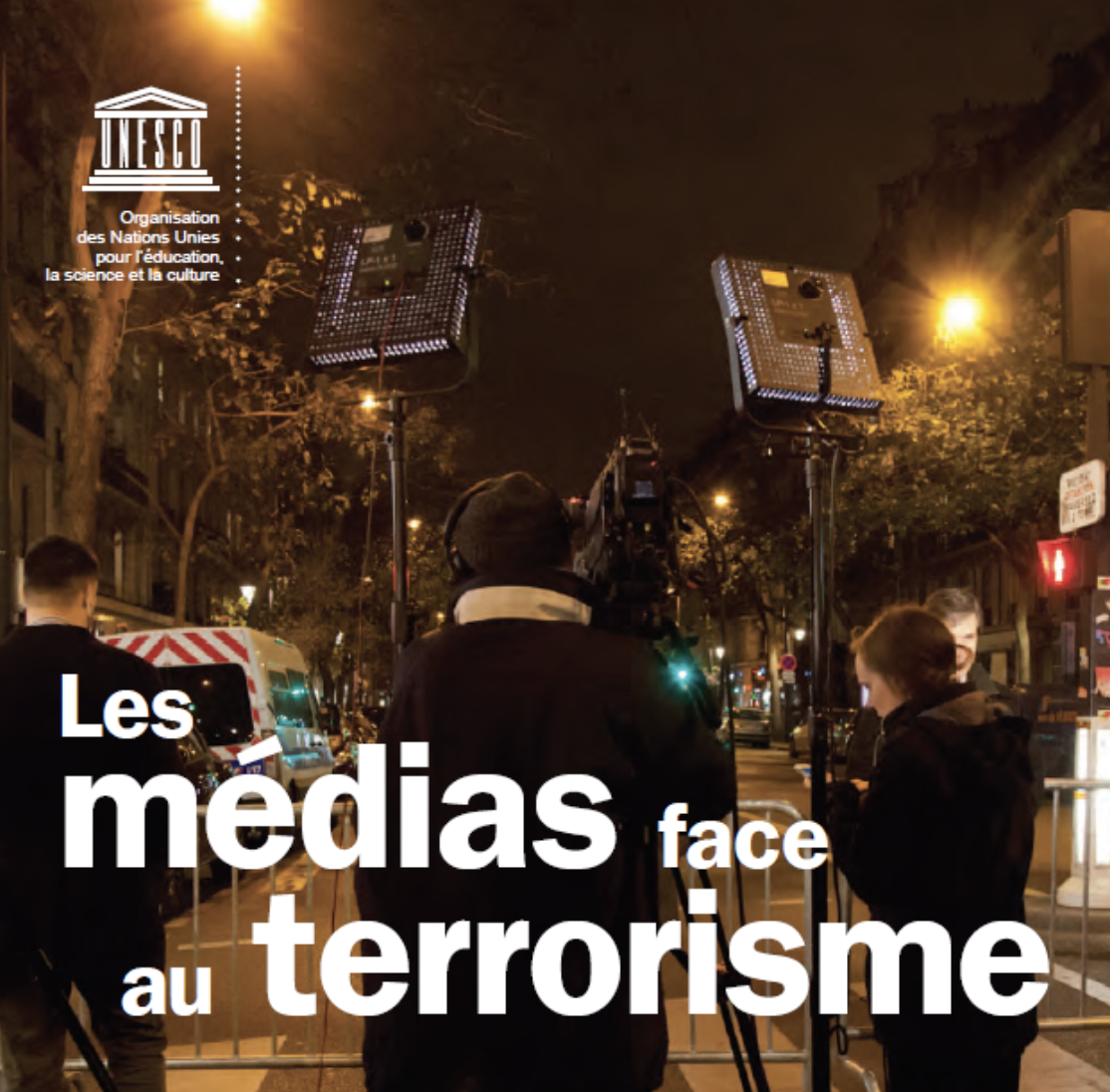 Terrorism, which has been the subject of constant media coverage for several years, is a subject which challenges professionals to maintain a journalistic ethic and to practice well-balanced journalism.
Terrorism, which has been the subject of constant media coverage for several years, is a subject which challenges professionals to maintain a journalistic ethic and to practice well-balanced journalism.
Many of the violent attacks taking place today are imagined, at least partially, with the media in mind, and target not just the real victims but millions of shocked and upset viewers around the world.
At the same time, in the face of intense pressure to attract the public and in a context of ongoing technological and financial change, the media may be strongly tempted to prioritize violence and sensationalism and be the first to disseminate last-minute information and rumours, even before being able to verify their accuracy.
Within this framework, UNESCO commissioned this guide to explore some of the ethical dilemmas that arise in the journalistic treatment of terrorism, and to engage in a dialogue with media professionals on ways to respond appropriately and proportionately to the issue.
Of course, this is not a call to provide less information. Journalism has an obligation to provide factual information in the public interest, while citizens have a fundamental right to access accurate and well-balanced information, especially when their safety and freedom are at stake. However, is this achieved through continuous coverage, constant media alerts and the repetition of the same information over and over again about events that are primarily of a fear-inducing nature?
Access
Please note that this resource is only available in French. To download our guidebook, click here.
LANDSCAPE OF HOPE — EVALUATION GUIDEBOOK
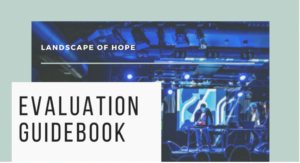
The Landscape of Hope team has put together a guidebook for evaluating art-driven and resilience-based initiatives. While the guide is intended to support researchers and partners of the project in measuring the progress and effectiveness of their work, it will serve as a practical tool to any organization undertaking similar work at the intersection of social justice, education and the arts.
The frameworks and methods included in the toolkit draw from an extensive literature review on community project evaluation, art education evaluation, and resilience-based project evaluation. Importantly, the toolkit draws on the steps recommended by the Canadian Heritage Anti-Racism Action Program evaluation guide.
Authors
Emma June Huebner, Concordia University
Ashley S. Montgomery, Concordia University
Access : This resource is available in both English and French. To download the guidebook, click here.
